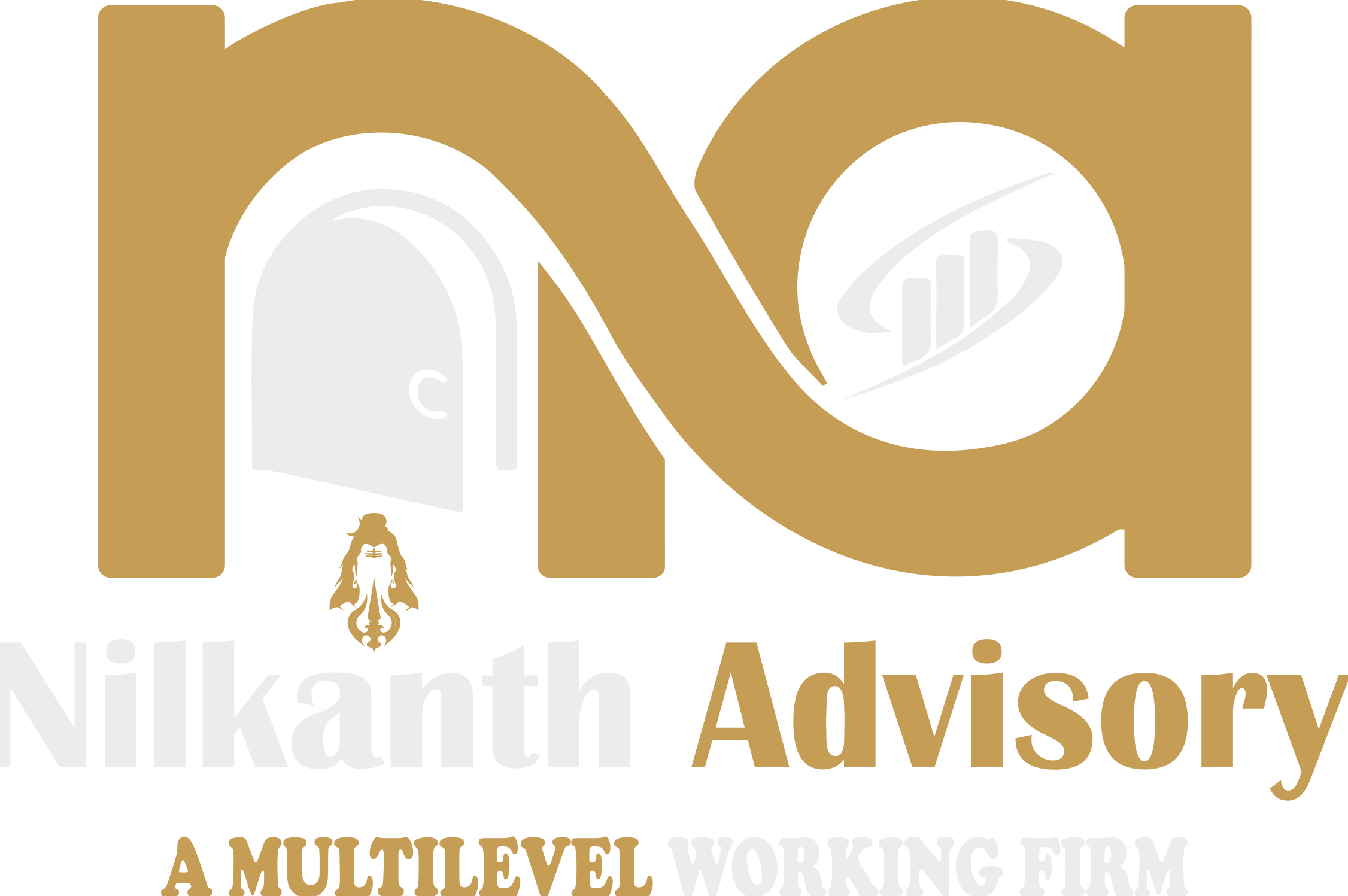What Is an Audit? (With Definition, Types and Purposes)
Updated February 4, 2023An audit is a detailed examination or inspection of a company’s or individual’s financial records and accounting documents. Although most audits are performed on companies’ finances so they can learn about their financial health and success, there are several additional types of audits. Understanding what they are and the purposes they serve can help companies and professionals decide whether they want to perform an audit and how it may benefit them.In this article, we define what an audit is, examine the various types of audits and discuss the purposes of completing them.
Strengthen your profile
What are your desired job types?
What are your desired job types?*Full-timePart-timeContractTemporaryShow all (1 more)Save
What is an audit?
An audit is an evaluation process that involves performing an inspection of documents to confirm the accuracy of an organization’s or individual’s financial statements. Following an initial examination of financial records, an auditor performs physical checks on inventory and makes sure that the professional or company records transactions correctly.Audits can serve a variety of purposes. For example, a company may request an internal audit to learn more about its financial situation, or an external financial contributor may request an external audit to ensure the organization reports information accurately. Related:Learn About Being an Auditor
Types of audits
Types of audits vary from organization to organization. For example, a construction company may conduct an audit to analyze project expenses or contractor costs. Here are some different types of audits:
Internal audits
A company’s employee conducts an internal audit and then reports their findings to an audit committee, made up of the board of directors. Internal audits can help a company define areas for improvement while providing necessary information to reach company goals.While an external audit usually focuses on financial matters, the scope of an internal audit is broad and can include anything that may impact achieving company goals. An internal audit often centers around key activities such as:
- Investigating cases of fraud or theft
- Monitoring regulations and law compliance
- Checking the effectiveness of internal controls and advancing ideas for improvement
- Reviewing and verifying financial and operational information
- Examining the economy, efficiency and effectiveness of company processes and operations
- Evaluating company risk management procedures and policies
Related:Learn About Being a CPA (Certified Public Accountant)
External audit
A third independent party who has no connection to a business, such as the IRS or an independent accountant, can perform an external audit. Generally accepted auditing standards regulate external audits, and determining the accuracy of accounting records is the main objective of completing them.Company law in most jurisdictions requires an annual external audit for companies over a certain size. The requirement for an external audit comes from the separation of control and ownership in a large company, where company leaders nominate directors to run the company on their behalf.These leaders, including external financial contributors, require assurance that the company’s financial reports are accurate. An external audit provides reasonable confidence to the shareholders that the financial statements are free from material misstatements.Related:Learn About External vs. Internal Audits (Four Key Differences)
Forensic audit
For situations involving legal implications, a forensic audit is necessary. Situations that require a forensic audit may include:
- Fraud investigations involving tax evasion, insider trading, misappropriation of funds or money laundering
- Assessment of loss in the case of insurance claims
- Investigation and determination of claims of professional accountancy negligence
- Establishment of a business partner’s profit share when there is a dispute
Companies and individuals can use forensic audit findings in a court of law as an expert opinion on financial matters.Related:A Guide to Forensic Audits: Definition, Uses and Importance
Tax audit
IRS tax audits assess the accuracy of company tax returns and the amounts paid or refunded. In some jurisdictions, certain companies are required to have regular tax audits, while in other jurisdictions, balloting systems randomly select companies for a tax audit. There are three primary types of IRS tax audits: mail, office and field audits.Related:15 Types of Audits for Your Business (And When To Use Them)
Public sector audit
In several jurisdictions, the law provides that a public sector auditor must audit state-owned companies or organizations. The auditor general, an institute that strengthens public sector accountability, supervises public sector audits.During a public sector audit, the financial affairs of state-owned enterprises are assessed for whether operations and standard procedures comply with good governance. This audit is more in-depth than a private organization’s financial audit, which focuses on the reliability of a company’s financial statements.Related:The 4 Types of Auditing Reports
Information system audit
An information system audit assesses the controls relevant to an organization’s infrastructure. This audit often forms part of the internal control assessment during an audit.An information system audit typically analyzes:
- The system design and internal controls
- Information privacy and security
- Operational efficiency and effectiveness
- Data and information processing integrity
- System development standards
Related:How To Develop an Audit Plan in 6 Steps
Social and environmental audit
This audit assesses the environmental and social impact of an organization on its economic activities. The need for environmental auditing is growing as many companies provide environmental and sustainability reports along with their annual report, detailing the impact of their business activities on the environment and their initiatives to reduce their footprint.To ensure the accuracy of business environment reports and claims, an environmental audit is conducted. For example, an environmental audit verifies a company’s report on its CO² emissions.Related:Accounting vs. Auditing: What’s the Difference?
Get interview-ready with tips from Indeed
Prepare for interviews with practice questions and tips
What is the purpose of an audit?
Audits perform a crucial role for organizations and can serve a variety of purposes depending on the company and its requirements. They can uncover financial issues or bookkeeping errors and help a company get back on track. An organization can use an audit when:
- Maintaining compliance: One of the most important reasons for an audit is to ensure the company meets statutory industry requirements and regulations. An audit gives a business owner or shareholders confidence that the company is compliant with all its statutory obligations and doesn’t run the risk of heavy fines or a tarnished reputation.
- Making system improvements: Since an audit looks closely at systems and controls, auditors will often suggest beneficial improvements to make an organization more efficient.
- Improving planning and budgeting: Since an audit confirms the accuracy of financial statements with income, expenses, assets and liabilities being carefully examined, the information gathered can help with future financial planning, decision-making and budgeting.
- Detecting and preventing fraud: Workplace fraud can go undetected and cause irreparable damage to a company. An audit is an effective tool to identify fraud or opportunities for fraud by pinpointing organizational system weaknesses and finding solutions and controls to prevent fraud.
An audit is the examination of the financial report of an organisation – as presented in the annual report – by someone independent of that organisation. The financial report includes a balance sheet, an income statement, a statement of changes in equity, a cash flow statement, and notes comprising a summary of significant accounting policies and other explanatory notes.
The purpose of an audit is to form a view on whether the information presented in the financial report, taken as a whole, reflects the financial position of the organisation at a given date, for example:
- Are details of what is owned and what the organisation owes properly recorded in the balance sheet?
- Are profits or losses properly assessed?
When examining the financial report, auditors must follow auditing standards which are set by a government body. Once auditors have completed their work, they write an audit report, explaining what they have done and giving an opinion drawn from their work. Generally, all listed companies and limited liability companies are subject to an audit each year. Other organisations may require or request an audit depending on their structure and ownership.
What don’t auditors do?

- Audit other information provided to the members of the organisation, for example, the directors’ report.
- Check every figure in the financial report – audits are based on selective testing only.
- Judge the appropriateness of the organisation’s business activities or strategies or decisions made by the directors.
- Look at every transaction carried out by the organisation.
- Test the adequacy of all of the organisation’s internal controls.
- Comment to shareholders on the quality of directors and management, the quality of corporate governance or the quality of the organisation’s risk management procedures and controls.
What can’t auditors do?

- Predict the future – The audit relates to a specific past accounting period. It does not judge what may happen in the future, and so cannot provide assurance that the organisation will continue in business indefinitely.
- Be there all the time – The audit is carried out during a defined timeframe, and auditors are not at the organisation all the time. The prime purpose of the audit is to form an opinion on the information in the financial report taken as a whole, and not to identify all possible irregularities. This means that although auditors are on the look-out for signs of potential material fraud, it is not possible to be certain that frauds will be identified.
How is the audit conducted?
- The organisation’s management prepares the financial report. It must be prepared in accordance with legal requirements and financial reporting standards.
- The organisation’s directors approve the financial report.
- Auditors start their examination by gaining an understanding of the organisation’s activities, and considering the economic and industry issues that might have affected the business during the reporting period.
- For each major activity listed in the financial report, auditors identify and assess any risks which could have a significant impact on the financial position or financial performance, and also some of the measures (called internal controls) that the organisation has put in place to mitigate those risks.
- Based on the risks and controls identified, auditors consider what management does has done to ensure the financial report is accurate, and examine supporting evidence.
- Auditors then make a judgement as to whether the financial report taken as a whole presents a true and fair view of the financial results and position of the organisation and its cash flows, and is in compliance with financial reporting standards and, if applicable, the Corporations Act.
- Finally, auditors prepare an audit report setting out their opinion, for the organisation’s shareholders or members.
What do auditors do, specifically?
Auditors discuss the scope of the audit work with the organisation – the directors or management may request that additional procedures be performed. Auditors maintain independence from management and directors so that tests and judgments are made objectively. Auditors determine the type and extent of the audit procedures they will perform, depending on the risks and controls they have identified. The procedures may include:
- asking a range of questions – from formal written questions, to informal oral questions – of a range of individuals at the organisation.
- examining financial and accounting records, other documents, and tangible items such as plant and equipment.
- making judgments on significant estimates or assumptions that management made when they prepared the financial report.
- obtaining written confirmations of certain matters, for eg, asking a debtor to confirm the amount of their debt with the organisation.
- testing some of the organisation’s internal controls.
- watching certain processes or procedures being performed.
What is Audit and What Are the Types of Audits?
As a business owner, apart from keeping an account of your financial transactions, some other aspects need to be kept in check for efficient business proceedings. The process of keeping it in check is known as auditing. Conducting regular audits is necessary for your business as it helps ensure your business recordings’ accuracy.
In this article, we will give you a detailed analysis of audits and their types to ensure effective accounting processes.
What is Audit?
An audit is a type of investigation of existing reports, statements or business as a whole. Individuals and companies hire an auditor to examine the financial reports of an entity, accounting statements, management reports, expense and revenue reports and operational accounts.
In most cases, a CPA or Certified Public Accountant is engaged in the auditing process. They obtain ‘reasonable assurance’ of records being accurate and fair and comply with set standards. The auditing process also helps firms to identify certain inefficiencies in their business processes and finances and make recommendations to improve the situation. However, the main focus mostly remains to check any wrongdoings or non-compliance of firms.
Importance of Audits
Audits are important for a business as they provide a sense of credibility to the financial statements and reports of the firm. It also gives stakeholders confidence that financial accounts are fair and true to what is produced.
Moreover, an audit is an important process that helps in enhancing the financial health and internal systems of a business. As the process can identify any inaccuracy or wrongdoings in accounts, rectifying them for efficient business becomes easy.
Different Types of Audits
There are several types of audits that a business can choose to implement to assess the overall health of the company. They are discussed as follows:
- Internal Audit
This type of audit takes place within the company, where owners take the initiative to get the firm audited by an auditor. The internal auditing process is considered a way to update company board members and shareholders about the finances. It also helps to check and align with the firm’s financial goals.
If you conduct an internal audit in your firm, the results can help assess risk management processes and policies, along with analysing the operational process of the company.
- External Audit
The external audit process is compulsory for certain organisations according to the requirements and rules set by its shareholders. The report of the external audit is shown to all shareholders during the company’s annual general meeting and Board of Directors meeting.
Certain independent professionals conduct external audits based on the qualifications stated in the rules. Such audits can be commenced half-yearly, quarterly or annually, and results can be used to bring enhancement in business proceedings.
- Performance Audits
This audit is performed within an organisation for various reasons. The main objectives that a firm focuses on when requesting a performance audit are to evaluate internal controls of the company analyse business perspectives, assess different effectiveness and results of the program and conduct operational audits.
In this case, auditors assess the processes and systems of the business to measure its productivity and efficiency towards business goals.
- Compliance Audits
Compliance audits mainly examine the processes and policies of a business or a specific department in the firm. The aim is to check whether the business is compliant with regulatory or internal standards. Such audits are mostly conducted within educational institutions or regulated industries.
- Operational Audits
This auditing process is very similar to an internal audit. Organisations conduct this audit internally, but in some cases, agents are hired externally to complete this procedure. The main aim here is to enhance organisational operations and spot any inefficiencies. Moreover, operational audits analyse the policies, processes, goals and outcomes of functions.
- Statutory Audits
A company conducts statutory audits to check whether it complies with all the policies and regulations stated by the Government. An external auditor verifies these regulations while conducting an external business audit.
The auditing process results demonstrate different results in the financial report, including bank statements, earnings on investment and total clients. This auditing enhances the trust and transparency among business stakeholders and the public, making it efficient as time passes.
- IRS Tax Audits
This is a type of tax audit that analyses the accuracy of tax returns filed by the business. Here, the auditors look for irregularities in the tax liabilities of the company and make sure the business does not underpay or overpay their taxes. IRS audits are generally conducted randomly by the auditors and are done via in-person interviews or mail.
- Payroll Audit
Payroll auditing systems focus on identifying different errors and improving business compliance to protect it from different frauds. Such audits are either conducted by internal auditors or any third-party auditor hired by the firm.
- Information System Audit
Such an auditing system helps evaluate different IT risks of a business and understand the systems followed. Different technology-oriented firms use IT audit systems to ensure the security of their data, analyse technology uses, protect systems from hackers and recommend improvement points to the system. Moreover, the reports from this audit guarantee stakeholders that company objectives are met, and business structure stays updated.
- Forensic Audit
Here, the financial records of a business are examined to identify any illegal financial activities. The auditor or a forensic accountant looks for evidence that could be provided in the court and brings resolution to conflicts among stakeholders. It is important to note that forensic audits must be conducted if an individual suspects theft, inaccuracies or fraud in financial balances.
Conclusion
Now that you have understood the different types of auditing processes, it will be clear as to which audit to commence as per your business needs. There is a common misconception among people that auditing is a negative thing. But this is not true. The proceedings are time-consuming, but overall, they help businesses improve their finances, expose frauds and help shareholders make accurate business decisions.
